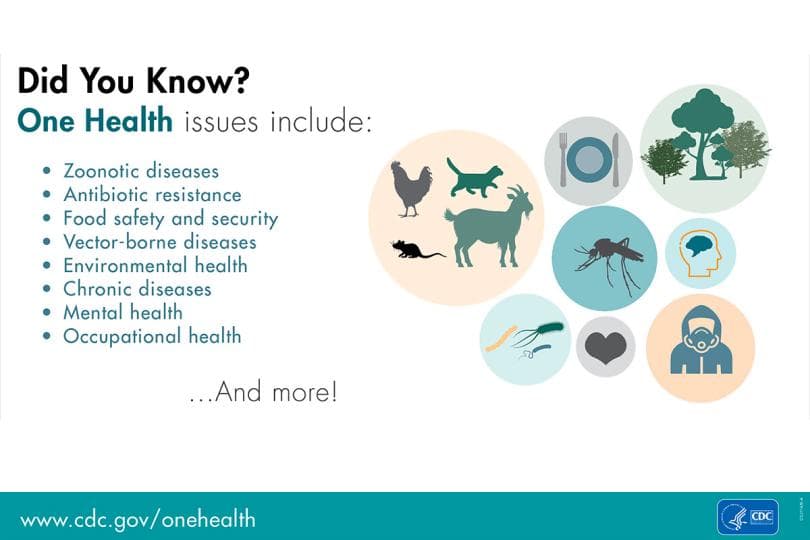Climate Change and Disease Risk

The One Health concept, tracing back to Hippocrates' work around 400 B.C.E., emphasizes the interconnectedness of human, animal, and environmental health. This multidisciplinary approach has gained prominence, particularly in the aftermath of the COVID-19 pandemic, highlighting the importance of understanding the intricate relationships between climatic changes and the transmission of infectious diseases. The interplay of environmental factors—such as climate change—alters the lifecycle of pathogens and vectors, influencing the spread of diseases like dengue, cholera, and influenza. These shifts are critical in understanding the global health landscape, as vector-borne diseases alone account for over 17% of all infectious diseases, leading to approximately 700,000 deaths annually worldwide.
Recent climate changes, including warming oceans and temperature fluctuations, are impacting human migration patterns and altering the ecological niches of pathogens, thus increasing the likelihood of disease outbreaks in previously unaffected regions. The expansion of pathogens such as vibrios into new geographical areas highlights the direct impact of temperature increases on disease distribution.
The complexity of the relationships between climate change, pathogen dynamics, and human health requires a nuanced understanding and approach to disease management and prevention. Collaborative efforts by the American Society for Microbiology and the American Geophysical Union are aimed at integrating climate science with microbiology to better predict and manage health risks related to climate change. This includes the development of early warning systems for disease outbreaks and enhancing strategies to combat respiratory and vector-borne diseases, which are exacerbated by climate change and environmental degradation.
The One Health initiative underlines the necessity of a holistic view in addressing health threats, advocating for an integrated approach that considers environmental, animal, and human health components to effectively manage and mitigate the impacts of climate change on global health.


































